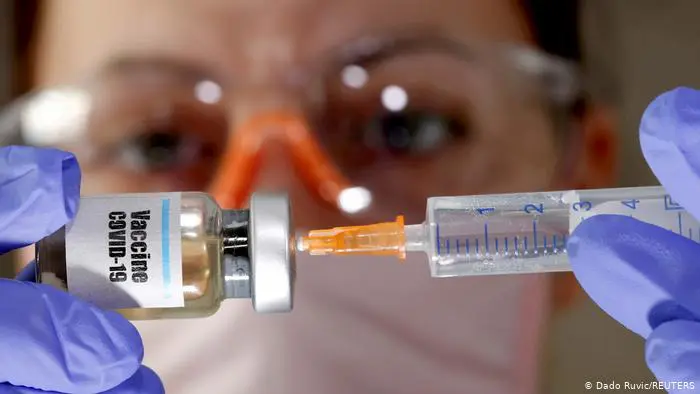A third dose of the COVID-19 vaccine at Oxford University and AstraZeneca has elicited a strong immune response, Reuters reported, citing a study by scientists.
The authors of the study emphasize that so far there is no evidence that a third dose is needed to boost the immune response, especially given the lack of vaccines in some countries.
A study by the University of Oxford found that a third dose of the vaccine boosted immune protection with antibodies and T-cells, with the second dose being delayed by up to 45 weeks and also triggering a strong immune response.
The British government has announced that it is considering a plan for a vaccination campaign in the autumn to strengthen protection, after three-fifths of the country’s adult population has already been immunized with two doses of the COVID-19 vaccine.
Oxford Vaccine Group Director Andrew Pollard said the evidence that the vaccine protects against the now-widespread variants of the new coronavirus for some time means that a booster third dose is unlikely to be needed.
“However, we must be able to strengthen the defense if this proves necessary … but we have no evidence that this will be necessary,” he told reporters.
“For now, with the high level of protection among the UK population and no evidence that it is being lost, it is not acceptable to give a third dose in the UK while other countries have not been vaccinated at all,” he said.
Previous studies have shown that the vaccine, invented at Oxford University and licensed by AstraZeneca, is more effective if the second dose is taken on the twelfth week after the first, instead of four weeks after it.
The study, announced Monday before its official release, was conducted among 30 people who received a late second dose and 90 people who received a third dose. All participants are over 55 years old.
The results alleviate concerns that vector vaccines such as AstraZeneca and Johnson & Johnson may lose their effect if annual immunizations are needed because of the risks that the body reacts against the vector that imports the genetic information into the vaccine.
“There were some concerns that we would not be able to use this vaccine with a booster vaccination regimen, and the study data definitely do not indicate this,” study author Teresa Lamb of the Jenner Institute at Oxford University told Reuters.







